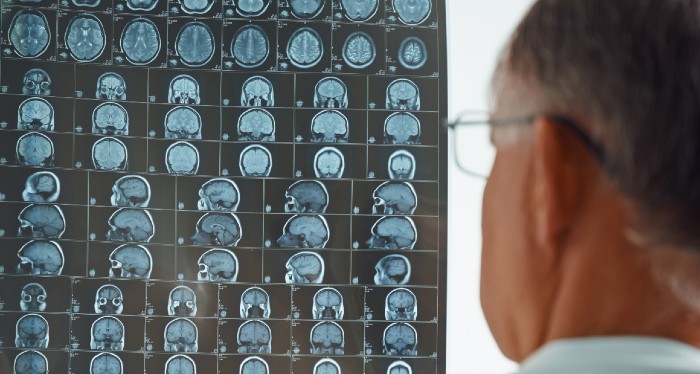 "The new centres' main aim is to better treatment so more survive with a proper quality of life." says Hans Skovgaard Poulsen. Photo: Colourbox.
"The new centres' main aim is to better treatment so more survive with a proper quality of life." says Hans Skovgaard Poulsen. Photo: Colourbox.
12-11-2020
In the past 15 years, survival ship has not improved among patients with the most aggressive brain tumour type, glioblastoma. A new national research centre for brain tumours will change this pattern. Brain tumour patients' future prospects are brightened as the centre collects and maps genomes from all brain tumours, as well as systematically compile data on the treatments' effects.
A new national centre for research on and treatment of brain tumour sees the light of day. Such news is uplifting for the vulnerable patient group suffering from brain tumours. The centre's establishment and its attention on glioblastoma is highly need, as the prognosis has not changed in 15 years.
"Why we need to shed light on brain tumours is dismal. We have not seen an improved survival in 15 years, thus we need to take action. The purpose of the centre is to reach a better treatment, where more and more survive with decent quality of life" says Hans Skovgaard Poulsen, professor at Department of Neuro-oncology at Finsenscenteret and Co-head of the new research centre.
The median survival among patients diagnosed with glioblastoma is just 15-20 months, while the five-year-survival-rate is less than 10%. These numbers are unacceptable, states Hans Skovgaard Poulsen
Mapping tumours will lead the way for targeted treatment.
First step is systematic collection of data, where a patient's diagnosis, applied treatment and its effects are well mapped.
"Besides the standard treatments operation, radiotherapy and chemo, patients are offered a treatment targeted their tumour. Hopefully, it results in better treatment – and at the same time give important knowledge profiting future patients" says Hans Skovgaard Poulsen.
Whole genome sequencing of brain tumours plays a crucial role, as it allows differentiated treatment specifically targeted one patient. It means that doctors can give an individual treatment of a tumour, in addition to standard treatment.
At first, the centre plans to include 2000-2500 glioblastoma patients from the four national treatment centres in the next 5 years. The collected data, will concern primary tumours and relapses – and will go through extensive molecular profiling to identify the underlying mechanics causing treatment resistance and relapse.
The register containing data on different tumours, treatments and their effects, gives medical doctors a much better groundwork when deciding on what treatment to give a patient. As the research is national, patients will also be offered participation in clinical trials, conducted by the research centre, regardless of demography and treatment facility.
Supporting a vulnerable patient group is important
The nation and multidisciplinary network Danish Neuro-Oncological Group (DNOG) welcomes the new research centre.
"We admire the large support Knæk Cancer has gotten and appreciate the funding from Knæk Cancer that has been given to research in such a serious cancer disease, where the average survival is low and has not improved since 00s. At the same time, patients with this type of cancer are so weak and have not got the resources to fight for further research, alas all help is appreciated", says Rene Johannes Laursen, Consultant at Department of Neuro-surgery, Aalborg University Hospital and Head of DNOG.
He stresses, how lots of primary- and clinical researches have been conducted but without any major breakthroughs. Simultaneously, one hear of patients who experience great effects from treatments meant for other cancer types. Thus, the national and systematic data collection is a great step in the right direction.
"The new centre contributes to expanding targeted treatment, because a larger portion of future patients will get genome tumour sequencing. And the national data collection will hopefully lead to a breakthrough, a much needed breakthrough among patients with brain tumour", says Head of DNOG.
